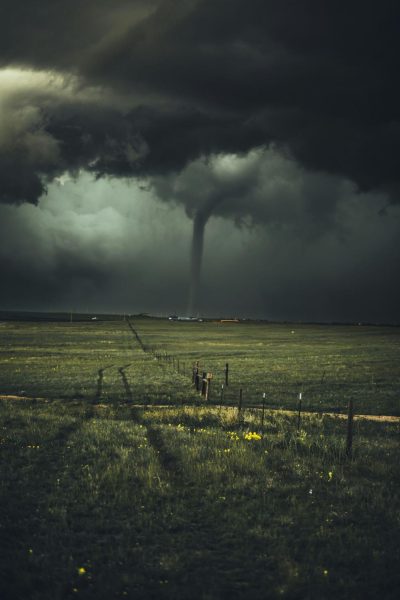
Climate change is affecting the lives of billions of people every day, making it one of the most critical crises we humans need to combat. Those most responsible are the same people who are doing whatever they can to keep it going — the top 1% of wealthy people in the world.
Climate change affects everyone, but where you live plays a key role in how you experience it. Franklin AP Environmental Science teacher Megan Whisnand says, “I feel like everyone has experienced the effects of climate change.” That can be through hurricanes, extreme high temperatures, or droughts. The effects of climate change are increasing in intensity, and it’s time we pressure the people in charge to change their values.
Unfortunately, economic status can shield people from the effects of climate change. Whisnand illustrates some examples of this: “If you can have air conditioning, if you’re able to move somewhere that isn’t close to sea level rise.” Since the very wealthy can afford to avoid the effects of climate change, they often choose to make profits for themselves rather than help the lives of innocent people around the world. Not everyone can afford to counter the impact of climate change, which is why it’s so important to stand up and fight for those who can’t.
“These huge corporations are seriously purely profit-driven,” claims Whisnand. She explains how big corporations such as Amazon use tactics to give the appearance that they’re supporting the climate when, as she believes, it’s a “façade that [they’re] trying to help the planet. But the reality is, they’re the ones that are just destroying things.” This tactic of “greenwashing,” when a company misleads the public to believe they are doing more to protect the environment than they are, is done to keep consumers on the side of big companies so they can continue to profit regardless of the cost to the climate.
Regulations for these companies’ carbon footprint are on track to lessen since the inauguration of President Donald Trump. Trump has long been a vocal supporter of deregulation, and the fossil fuel industry donated more than $75 million to his presidential campaign. The New York Times reports that during his first administration, Trump rolled back over 100 environmental policies, which he’s continued to target during his second term. One of Trump’s slogans during his election campaign was “drill, baby, drill,” a campaign posed to reverse clean energy policies and boost fossil fuel production. This harms the climate, as oil is one of the world’s biggest carbon emitters while simultaneously being a highly valued resource. Many of the wealthiest people in the world have supported Trump out of economic self-interest. Billionaires Elon Musk, Mark Zuckerberg, and Jeff Bezos all attended Trump’s inauguration. This is a sign that they are for the increased drilling and deregulations that President Trump supports. “It’s not about the health or the welfare of the United States citizens, or the health of the planet. It’s just [the top 1%] trying to make more money without any guardrails,” claims Whisnand. This is honestly quite sad to think about. At what point will humans choose the lives of billions of living ecosystems instead of their own pockets or convenience?
The top 1% aren’t the only ones making an impact on climate change. Everybody does things regularly that hurt the climate in some way, whether that’s driving to school or work, or taking longer showers than we need to. By monitoring our carbon footprint, we can limit the amount of carbon emissions we add to the atmosphere and help save our planet.
While the top 1% aren’t the only reason for the increase in carbon emissions, they are one of the biggest reasons why regulation isn’t being put into place to stop it from getting worse. Moreover, we seem to be one of the only countries that is not actively trying to slow down climate change. On his first day in office, Trump withdrew the U.S. from the Paris Climate Agreement, a pact among almost all nations to reduce greenhouse gas emissions and limit global warming.
In other countries where more of an effort is being made, they’re seeing promising results. “I feel like there are some places in the world [where] things are getting better. I saw that [in the United Kingdom], their carbon dioxide emissions dropped big time,” says Whisnand. The people in this world with the most power need to start using it to better this planet so everyone can thrive. If other countries are willing to stop being greedy and change their ways, why can’t we? This starts with the wealthiest in the world choosing the health of the rest of the world rather than their own profits.


































